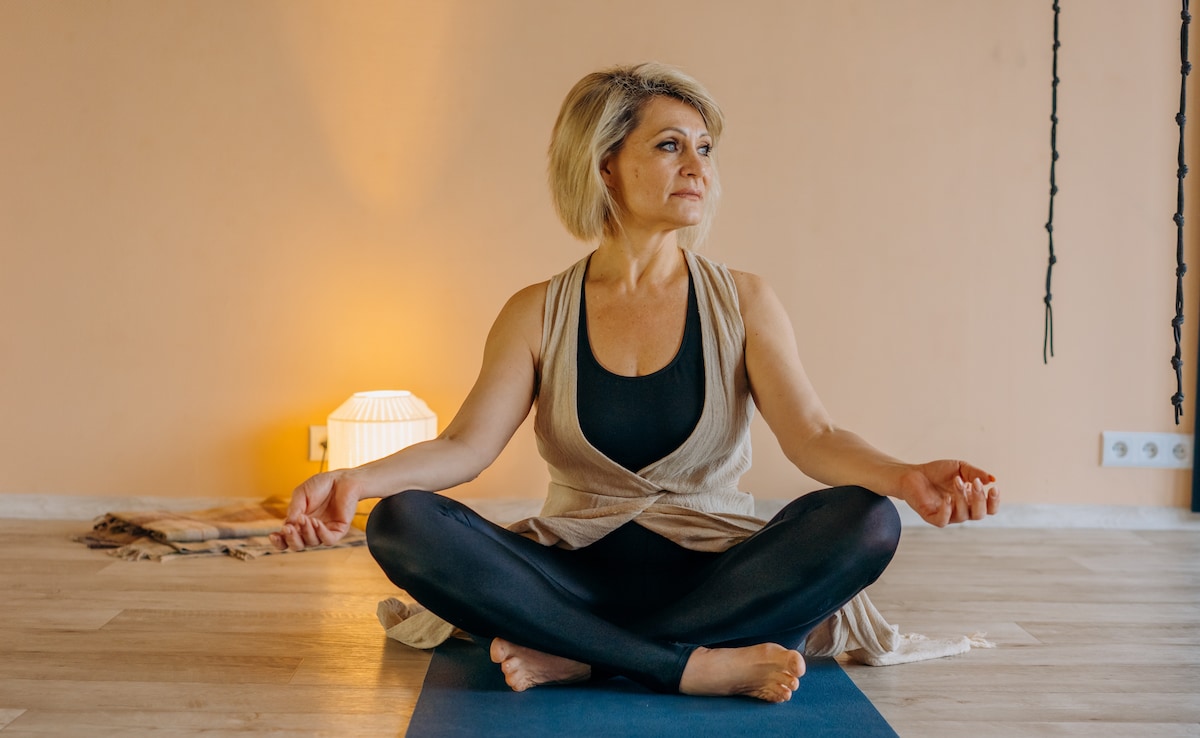Yoga is highly beneficial for the elderly as it promotes both physical and mental well-being. It helps improve flexibility, balance, and strength, which are crucial in preventing falls and enhancing mobility. Yoga also supports joint health by reducing stiffness and alleviating pain, particularly for those with arthritis. The focus on controlled breathing in yoga boosts lung capacity and respiratory function, while the meditative aspects reduce stress, anxiety, and feelings of isolation. Keep reading as we discuss the many benefits of yoga for the elderly.
Benefits of yoga for the elderly
1. Improves flexibility
As we age, muscles and joints naturally become stiffer and less flexible. Practicing yoga regularly helps elderly individuals maintain and improve their flexibility by gently stretching muscles and ligaments. Yoga postures like forward bends and twists help enhance the range of motion, making daily activities like bending or reaching easier, reducing the risk of injuries.
2. Enhances balance and stability
Falls are a major concern for elderly individuals, often leading to serious injuries. Yoga poses that focus on balance, such as tree pose or warrior III, can help seniors develop better coordination and stability. Improved balance reduces the likelihood of falls, boosts confidence in movement, and fosters greater independence in daily activities.
3. Boosts mental clarity
Yoga incorporates mindfulness and breathing techniques, which can have a calming effect on the mind. For seniors, regular yoga practice enhances mental clarity and concentration, reducing symptoms of cognitive decline. The meditation aspect of yoga improves memory, focus, and decision-making, contributing to a better quality of life.
4. Reduces joint pain and stiffness
For seniors dealing with conditions like arthritis or joint pain, yoga can be a gentle way to relieve discomfort. Certain yoga postures are designed to improve joint mobility and reduce stiffness. By regularly engaging in low-impact poses that stretch and strengthen muscles, elderly individuals can alleviate chronic pain and increase their ability to move more freely.
5. Improves cardiovascular health
Yoga is not only about flexibility and balance; it also promotes cardiovascular health. Gentle yoga practices can improve circulation, lower blood pressure, and enhance heart health. Regular yoga practice helps reduce stress levels, which lowers the risk of heart-related issues such as hypertension and heart disease, making it particularly beneficial for older adults.
6. Promotes respiratory health
As we age, lung capacity tends to diminish, leading to shortness of breath and decreased energy levels. Yoga emphasises controlled breathing exercises (pranayama) that help increase lung capacity and improve respiratory function. For seniors, practicing breathing techniques regularly can lead to better oxygen circulation, increased vitality, and improved overall respiratory health.
7. Reduces stress and anxiety
Seniors often face stress from changes in life circumstances, health challenges, or feelings of isolation. Yoga is known for its calming effects on the nervous system, helping to reduce stress, anxiety, and feelings of depression. Through relaxation techniques and mindfulness, seniors can cultivate emotional balance, leading to improved mental well-being.
8. Encourages social interaction
Yoga classes offer elderly individuals a chance to socialise with peers, reducing feelings of loneliness and isolation. Group yoga sessions create a supportive community where seniors can connect, share experiences, and foster friendships. This sense of community can boost emotional health, providing a greater sense of belonging and motivation to maintain an active lifestyle.
Try yoga today for better overall health.
Disclaimer: This content including advice provides generic information only. It is in no way a substitute for a qualified medical opinion. Always consult a specialist or your own doctor for more information. NDTV does not claim responsibility for this information.














